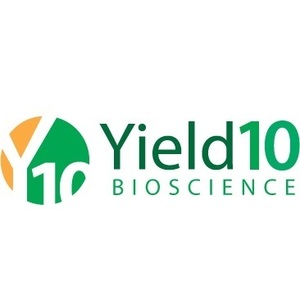Yield10 advances development of herbicide tolerant camelina

November 28, 2023
BY Yield10 Bioscience Inc
Yield10 Bioscience Inc., an agricultural bioscience company, on Oct. 11 announced recent advancements toward enabling weed control for Camelina cultivation and supporting grower adoption of the crop for production of low-carbon intensity feedstock oil for the biofuel market.
Control of broadleaf weeds is essential for the rapid adoption and success of commercial crops in North America. Yield10 is establishing a leadership position in the development of herbicide tolerant (“HT”) Camelina to drive broad acceptance of the crop by growers. The Company is developing Camelina with tolerance to a broad leaf herbicide, which has been used safely in commercial crop production for over 25 years. In addition, Yield10 is developing an herbicide package for Camelina, incorporating tolerance to over-the-top application of broadleaf herbicide as well as tolerance to soil residual Group 2 herbicides, which are commonly used to control weeds in cereal crops.
“The Yield10 team is making significant progress toward our goal of launching elite herbicide tolerant Camelina for producing feedstock oil for the biofuels market,” said Kristi Snell, Ph.D., chief science officer of Yield10 Bioscience. “We aim to facilitate the seamless integration of Camelina with current weed control and crop rotation practices of major crops in order to enable the planting of Camelina on large-scale acreage. This winter, we anticipate that our program will achieve another important milestone as we conduct field tests of stacked HT winter Camelina for the first time. We will also continue to execute on seed scale-up and regulatory activities in support of the planned commercial launch of our elite HT and stacked HT Camelina varieties.”
Development of commercial quality herbicide tolerant Camelina. Broad-spectrum herbicides have been used to protect seed yield by controlling broadleaf weeds.
Advertisement
Advertisement
- Yield10 has demonstrated tolerance to over-the-top spray application of a commonly used broad leaf herbicide in its E3902 HT Camelina in three cycles of field testing. Additional field test data is being collected and grain and protein meal samples analyzed to support the use of HT Camelina meal in livestock feed. Throughout 2023, Yield10 has conducted seed scale-up activities that will continue in the contra season in Chile. Yield10 is building seed inventory for a planned commercial launch of HT spring Camelina as early as 2025.
- Last year, Yield10 filed a request for Regulatory Status Review (RSR) with USDA-APHIS Biotechnology Regulatory Services (“BRS”) for Yield10’s broadleaf HT Camelina under the Sustainable, Ecological, Consistent, Uniform, Responsible, Efficient (SECURE) Rule. A response from the agency is pending.
- Earlier this year, one of the manufacturers of the herbicide submitted a label amendment to the Environmental Protection Agency to allow use of their broadleaf herbicide on Camelina.
Development of commercial quality stacked HT Camelina. Yield10 is developing elite Camelina varieties with a robust weed control package based on tolerance to a broad leaf herbicide application as well as to soil residues of Group 2 herbicides (“MI/imidazolinones and SU/sulfonylurea).
- Yield10 recently announced it demonstrated tolerance to over-the-top spray application of the commonly used broad leaf herbicide as well as tolerance to Group 2 herbicide in its spring E3902 stacked HT Camelina. Yield10 plans to conduct seed scale-up activities in contra season in Chile for this variety.
- Yield10 researchers have developed candidate stacked HT winter Camelina. Yield10 is testing stacked HT winter Camelina in field tests for the first time this winter.
- Earlier this year Yield10 filed an RSR with USDA-APHIS (BRS) for Yield10’s stacked HT Camelina under the SECURE Rule. A response from the agency is pending.
Advertisement
Advertisement
Related Stories
The U.S Department of Energy Bioenergy Technologies Office, in partnership with the Algae Foundation and NREL, on July 21 announced the grand champion and top four winning teams of the 2023 - 2025 U.S. DOE AlgaePrize Competition.
The USDA significantly increased its estimate for 2025-’26 soybean oil use in biofuel production in its latest World Agricultural Supply and Demand Estimates report, released July 11. The outlook for soybean production was revised down.
U.S. fuel ethanol capacity fell slightly in April, while biodiesel and renewable diesel capacity held steady, according to data released by the U.S. EIA on June 30. Feedstock consumption was down when compared to the previous month.
The U.S. EPA on July 8 hosted virtual public hearing to gather input on the agency’s recently released proposed rule to set 2026 and 2027 RFS RVOs. Members of the biofuel industry were among those to offer testimony during the event.
The USDA’s Risk Management Agency is implementing multiple changes to the Camelina pilot insurance program for the 2026 and succeeding crop years. The changes will expand coverage options and provide greater flexibility for producers.
Upcoming Events










